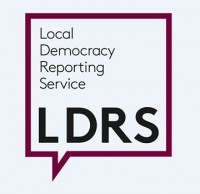 The BBC and regional publishers have hailed the success of their local democracy reporter scheme a year on from its launch.
The BBC and regional publishers have hailed the success of their local democracy reporter scheme a year on from its launch.
Under the £8m a year scheme, the BBC pays for reporters employed by local publishers to cover the work of local councils and other public bodies.
There are currently 135 of the reporters in post, covering England, Scotland and Wales, with the service due to launch in Northern Ireland soon.
The partnership was marked at a reception in Parliament last night attended by the Secretary of State for digital, culture, media and sport Jeremy Wright.
In its first year, the initiative produced 54,000 public interest stories which were used on the BBC and across a range of local media news outlets, including:
- A £24m health centre in Trafford, Manchester that will never be used and will cost £7m to turn into offices.
- A council in Leicestershire that had to hand back £900,000 paid to them by housing developers as the money had gone unspent for too long.
- A series of “near misses” from falling building materials at schools in Edinburgh – including three at a school where a pupil was killed by a collapsing wall.
JPIMedia editor-in-chief Jeremy Clifford, who chairs an advisory panel comprising representatives of the BBC and regional publishers, said: “In its first year, the Local News Partnership has produced a wealth of public interest journalism which has held councils to account, reversed controversial policies, and ensured that key decisions are held up to scrutiny.
“This has benefited the local media sector, the BBC and, most importantly, the public, who rely on trusted news and information to make sense of the world. We are proud of this partnership which is proof of the clear benefits that collaboration can bring to public interest journalism.”
Asked by Jeremy for his thoughts on the scheme, Mr Wright responded: “I think what we’ve heard this evening is how well it’s working, where it’s working.
“There’s a genuine question to be asked about whether, if money were no object – and I’m not promising by the way that it isn’t – whether you would have a Local Democracy Reporter in every place around the country, or whether there’s a limit to the number of places that can genuinely benefit from what you do.
“What it’s demonstrated is that by collaboration you can actually put in place journalists who add substantially to the product of local journalism. It is not a question of saying, ‘we’re just diverting resource from something that the local paper is already doing to something different’, it’s adding to the pot.
“I’m grateful to those who put this partnership together. I wish it every success in the future. I hope we will be able to see an increase in its capacity to do what it is already doing.”
Ken MacQuarrie, Director of BBC Nations & Regions, added: “We’ve proved that journalism partnerships can work. As a public service news provider, we believe in local news and we’re proud to support it. In a world of fake news, it’s vital people can get trusted local news which holds local decision-makers to account.
“We’ve overcome significant challenges in an industry that is traditionally highly competitive to enter partnerships that have proved in the last year to be a huge success, mutually beneficial and an obvious public good.”
“Around the world, the challenge of funding independent, impartial public service journalism is a serious issue.
“Partnerships are clearly part of the solution and we’re proud the BBC is leading the way by supporting local news and ensuring there is proper reporting of local issues.”





 Follow HTFP on Twitter
Follow HTFP on Twitter
Fill in this well known saying;
“They would, wouldn’t ….”
Report this comment
So here’s a thing. Undoubtedly having dozens of extra journalists covering councils will inevitably result in some successes – perhaps even a few real scoops. But I wonder exactly how many of these “new” roles have in fact been filled by the reporters who were covering town halls in the first place but paid for by the organisations that now benefit from this BBC funded scheme?
Surely what would have been better is to have given the money or the staff to the hyperlocals, who really don’t have the resources to cover everything.
Then we would have had two reporters covering the same council. That creates competition for better stories. It creates opportunities for different opinions to be voiced – that’s real democracy.
And to be honest as a licence fee payer, I rather resent my money being spent this way.
Report this comment
Well… I’m sure there have been some successes. But in my area (Home Counties) the articles are poor, the writing poor and lacking any level of much-needed subbing.
Report this comment
“Mixed success for local democracy reporter scheme”. Not quite such a headline grabber.
Report this comment